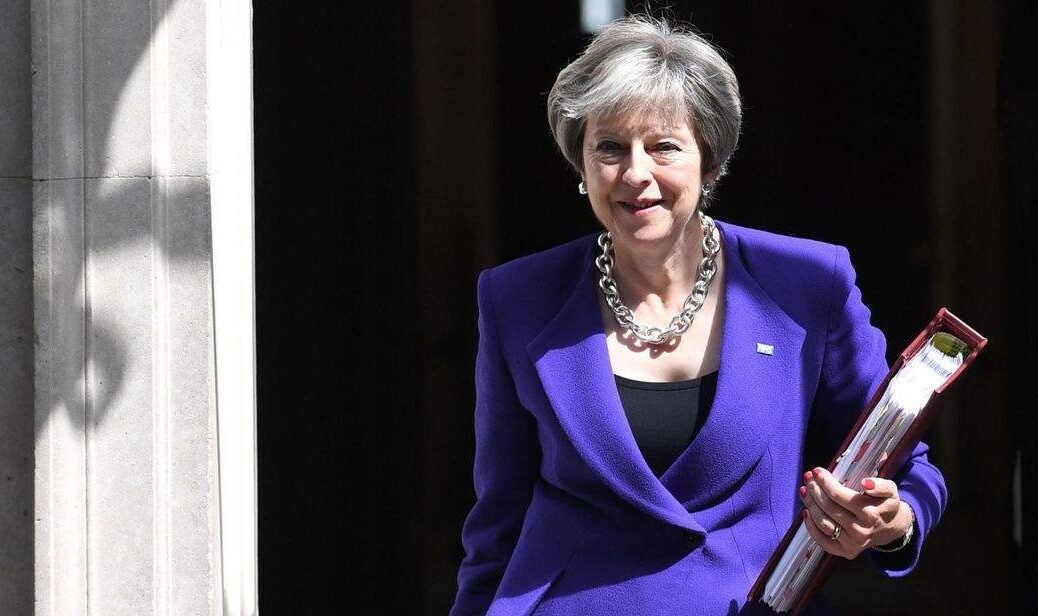
Like it or not, the Cabinet should back Theresa May’s compromise plan for Brexit – and that’s the point, writes Alec Marsh
When the prime minister and her Cabinet, plus certain officials such as Theresa May’s chief Europe adviser Olly Robbins – dubbed by some ‘the real Brexit secretary’ – meet at Chequers on Friday they will be acting for the good of the country if they give a firm approval to the latest plan for Brexit.
Neither impermeably hard nor entirely soft, the so-called Facilitated Customs Arrangement — which avoids UK businesses paying EU tariffs but allows the UK to collect the EU-only tariffs nonetheless – is not perfect but it is the best solution to the intractable problem of Northern Ireland’s border with the south.
That it won’t suit Jacob Rees-Mogg and the most ardent Brexit supporters is not the point, but they ought to back it – and back it gladly, because it will give Britain the chance to go back out into the world and forge its own trade deals with the rest of the world, which is where the greatest benefits of Britain’s split from the European Union lie.
Speaking to Spear’s, Professor Steve Peers, an expert in EU law and relations from Essex University, confirmed that what he described as ‘the May compromise’, offered the chance to end the impasse over the hard border of Northern Ireland. Mind you he’s not confident. ‘It might work but I’m not sure that Brussels will accept it,’ Peers says, noting that the EU tended to show greater flexibility when negotiating with joining or existing members.
However, we’re all in unchartered territory here – no one has left the EU before, and certainly no one as valuable to EU businesses as the UK. So alongside aspects that do appeal to Brussels – such movement on budget contributions and some compromise over movement of labour – May’s Facilitated Customs Arrangement does pass muster: it offers a solution to the Northern Ireland border issue which could therefore move the negotiations on towards the future trade relations, and pave the way for a deal that sees trade agreements over goods (which the EU really wants since it runs a trade surplus with Britain) alongside a Canada-style agreement offering access on services for the UK (which is what we really want of course) and ‘maybe further than that’ thinks Peers.
The May compromise is certainly not an out-and-out example of ‘cakeism’, as the harder-line British position has been mocked in the EU, which is one reason why those on the darkest blue end of the Brexit spectrum might balk at some of its provisions. But for businesses large and small — ones that want to trade in goods or services and employ talent from the EU, it’s the starting point for a pragmatic deal that above all else, should offer Britain the path to make its own deals with India, China, and the rising economies elsewhere, where future prosperity of Britain and the world lies. For this reason it might work – its economic pragmatism should appeal to Labour, which has talked of a ‘jobs first Brexit’. Even at the cost of Tory ultras walking, as Rees-Mogg this week raised the prospect of, it looks like May’s is the right deal for the country.
Finally, a thought from Adam Smith. In The Wealth of Nations, published the year of the declaration of American independence but revised over subsequent years, Smith expressed the opinion that once the hostilities with the American colonies were over, that cordial trading relations would resume. And so it proved to be: more than two centuries later the US is still the single biggest foreign direct investor into Britain. ‘By this parting good friends,’ Smith wrote, ‘the natural affection of the colonies to the mother country, which, perhaps, our late dissensions have well nigh extinguished, would quickly revive.’
Let’s hope that a strong compromise deal agreed at Chequers by the Cabinet will lay the groundwork for a strong and relatively unified negotiation that delivers just that with Europe. That might end up being just the pragmatic Brexit that’s in the interests of the EU and Britain, which also allows us to go beyond and pursue freer trade around the world, one which Smith would have approved of on all fronts.
Alec Marsh is editor of Spear’s
Related
An end to Brexit fears for investors?
Why honorary degrees matter in the age of Brexit
Twin transition: my kids’ graduation feels like Brexit






